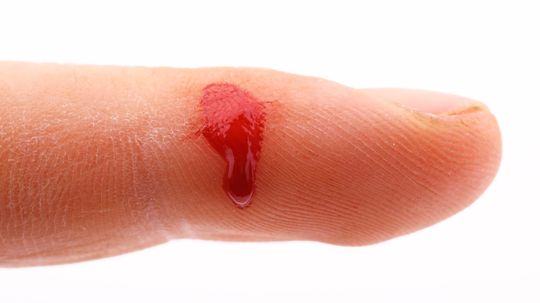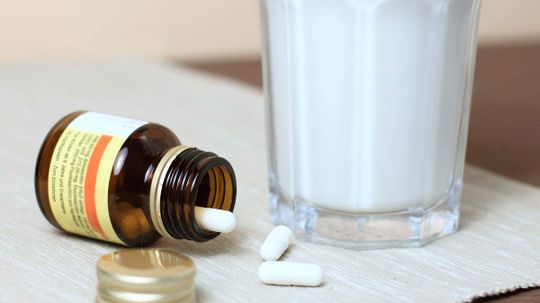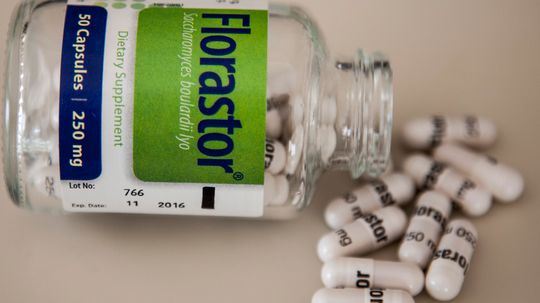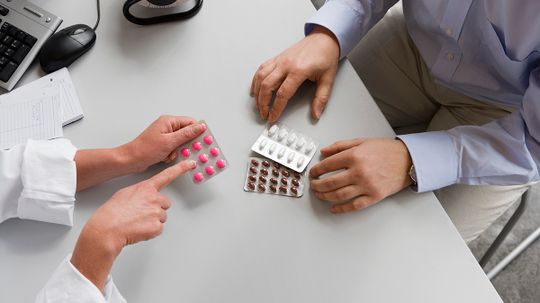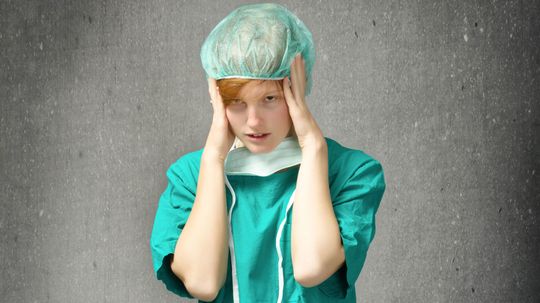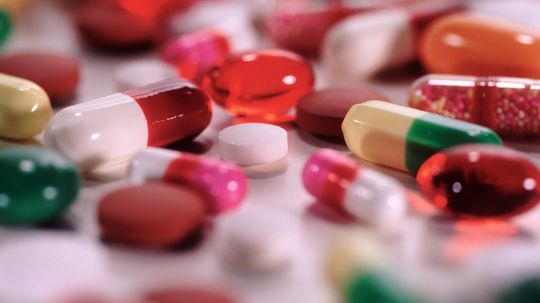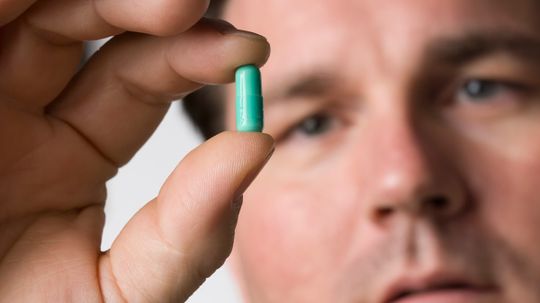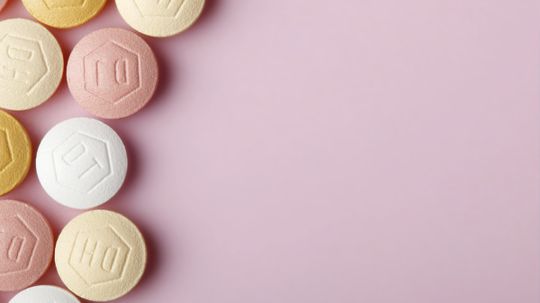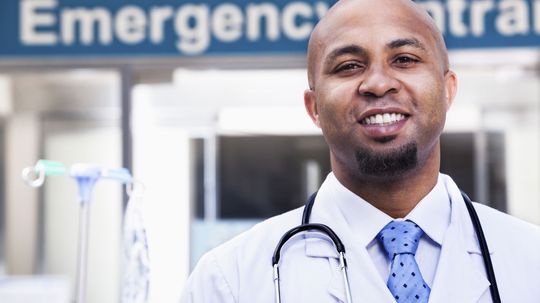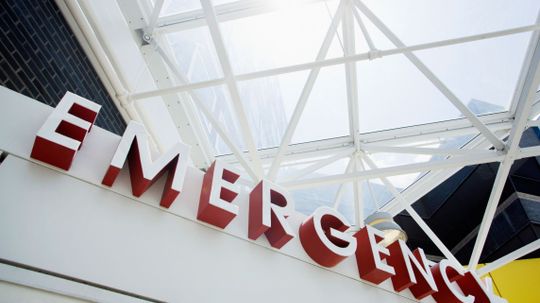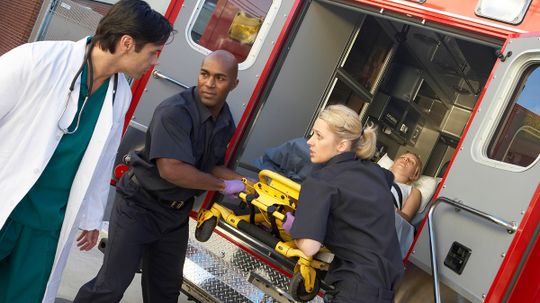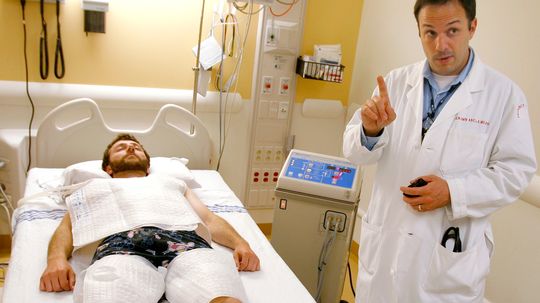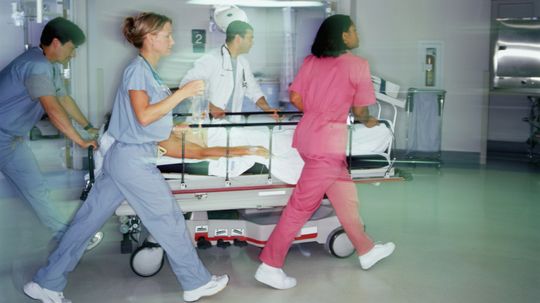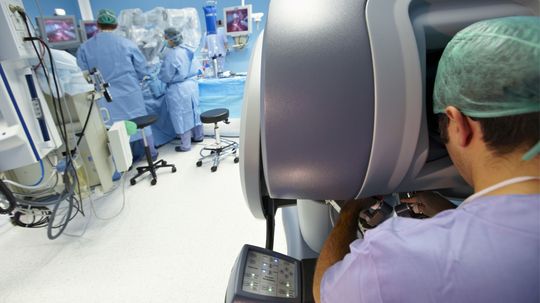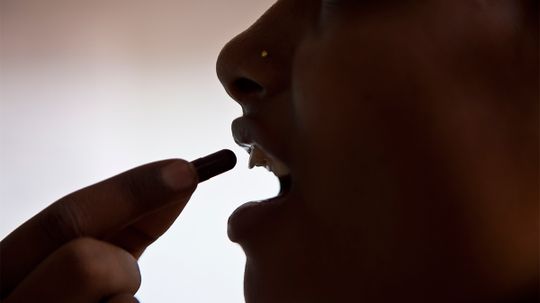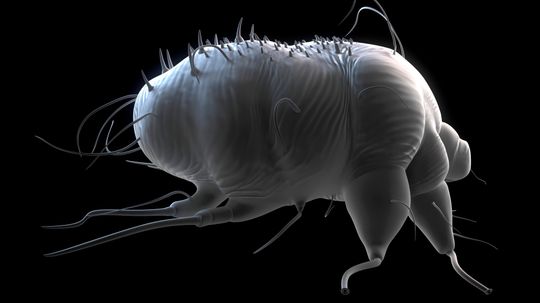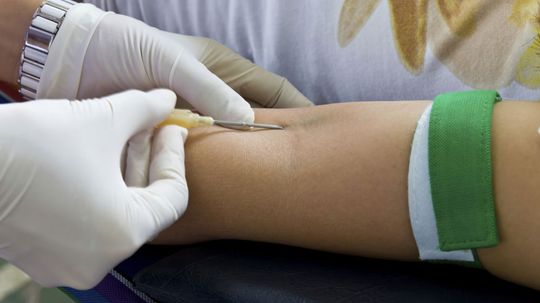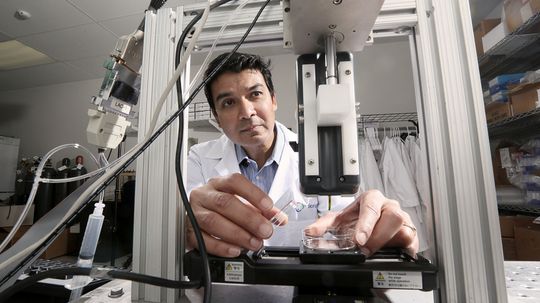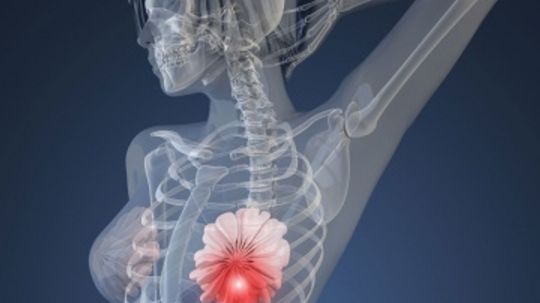Medicine
Medicine has to do with diseases and conditions that affect the entire body. In this section, learn about testing and treatment plans including the medicines used to prevent and treat a range of diseases and conditions.
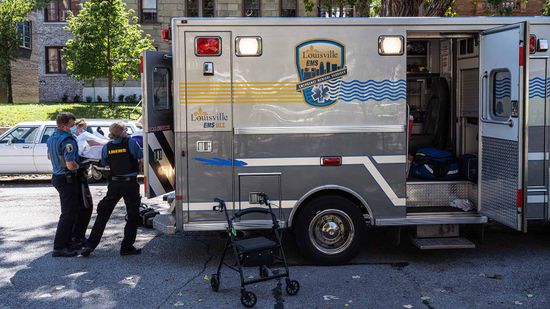
Is Your Hospital Diverting Ambulances Because of COVID-19?
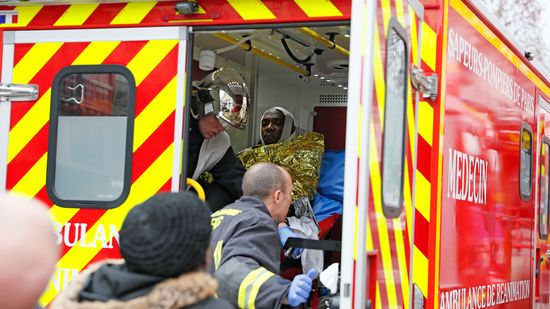
How Ambulances Work

Can You Go to the ER Without Health Insurance?
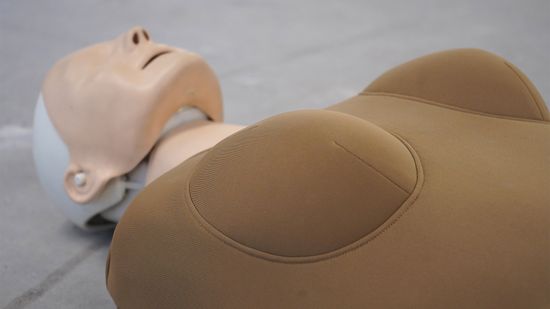
Womanikin: Overcoming the Stigma of Breasts and CPR
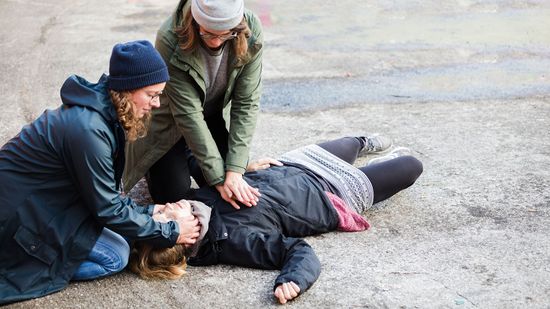
Women Less Likely to Receive CPR in Public, Study Finds
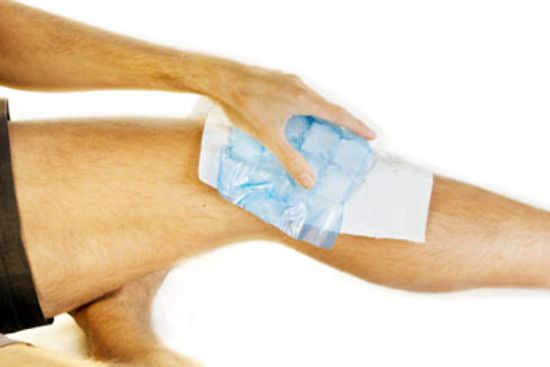
Should you use ice or heat to treat an injury?
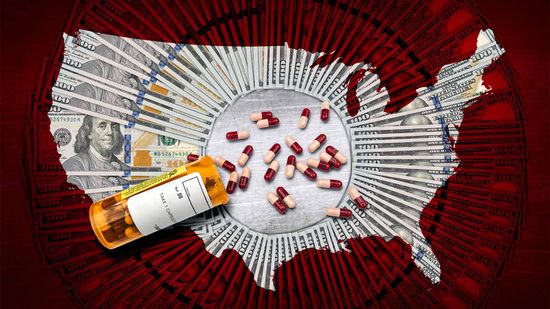
Mark Cuban Wants to Solve the U.S. Prescription Drug Price Crisis
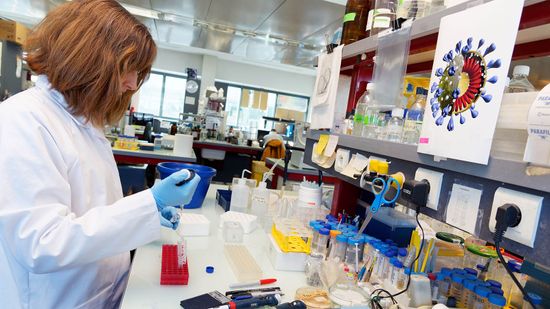
Epidemiologists Are the 'Disease Detectives' Protecting Public Health

Should Doctors Have to Pay Patients for Running Late?
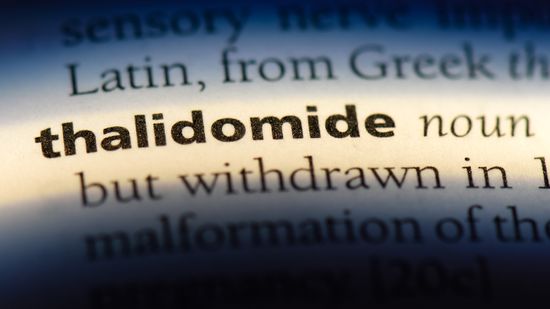
Thalidomide: How a Miracle Medication Became a Global Tragedy
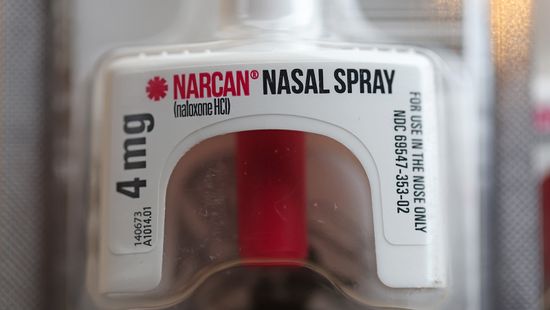
FDA Approves OTC Narcan Nasal Spray for Opioid Overdose
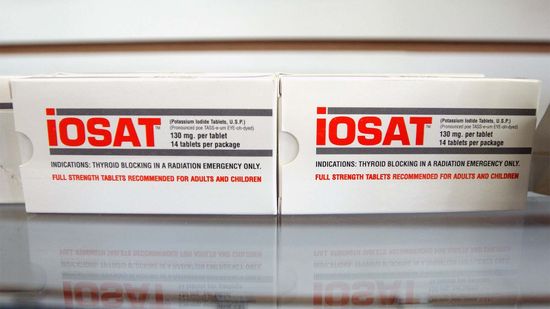
Why Are Potassium Iodide Pills Selling Like Crazy?
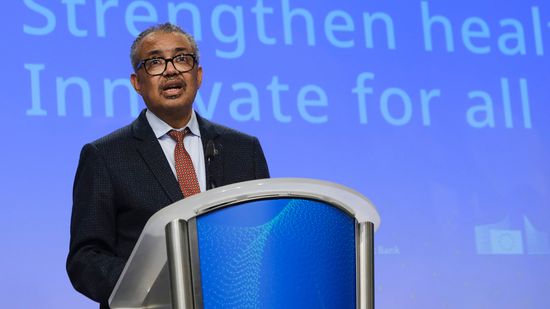
Who's the Most Powerful Doctor in the World? 5 Top Contenders

10 Types of Drugs Used for Medicinal (and Illicit) Purposes

15 Types of Doctors With Different Specialties
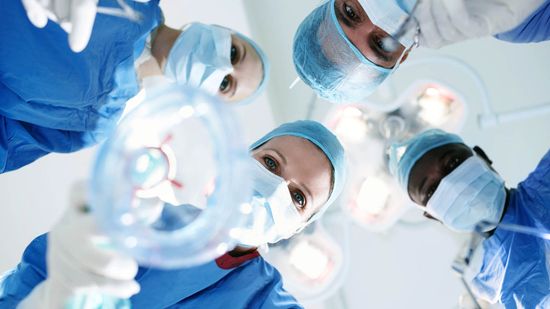
Anesthesia Awareness: When You're 'Awake and Aware' During Surgery
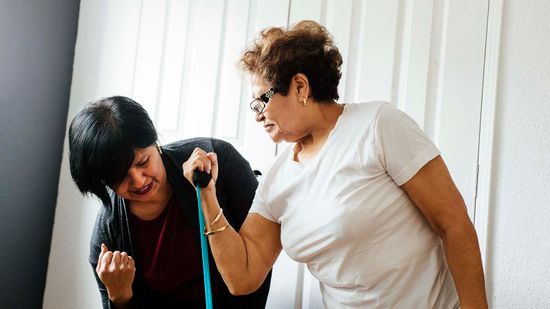
Prehab Could Make Your Recovery From Surgery a Bit Easier
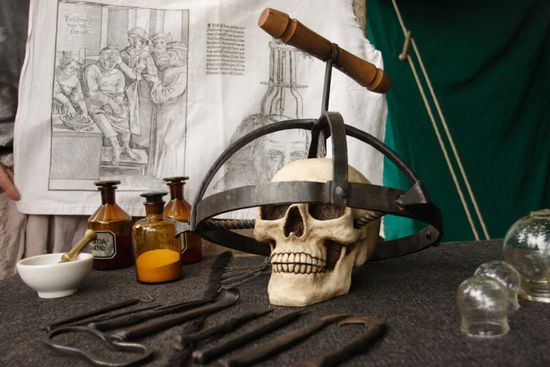
You Need It Like a Hole in the Head: The Ancient Medical Art of Trepanation
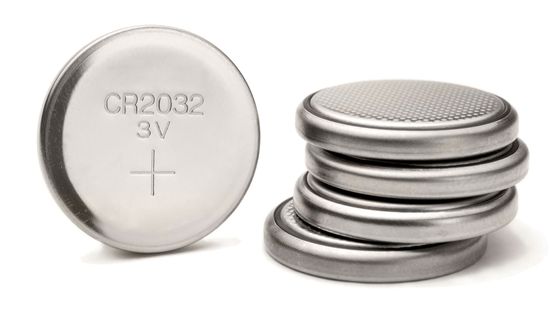
Honey Can Help If Your Child Swallows a Button Battery

What Is the Rarest Personality Type?
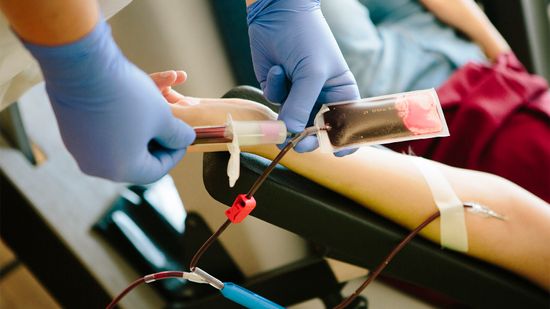
Veins, Needles, Yikes: What to Know Before Having Blood Drawn
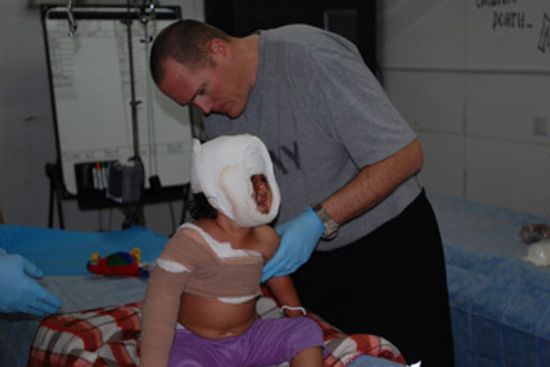
Are Army medics and doctors on the front lines?
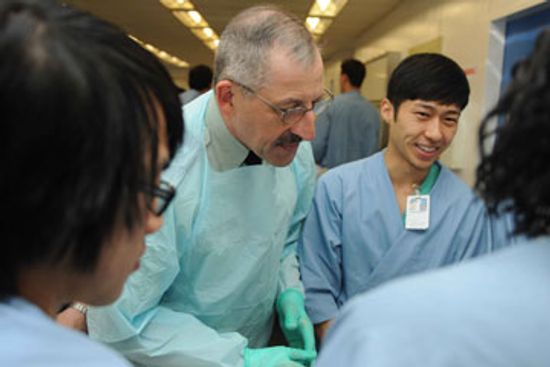
Can civilians become doctors in the U.S. Army?
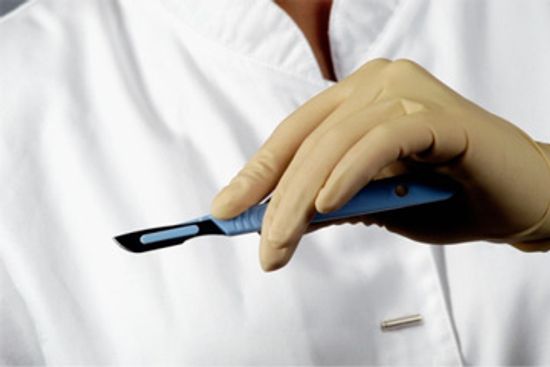
Do Army doctors and medics carry weapons?
Learn More / Page 4
You cut yourself prepping dinner. It's after business hours. But should you really take that laceration to the emergency room? Maybe not.
"Misbehaving periods" doesn't appear on any list of medication side effects, but as many women can attest, menstrual irregularities aren't uncommon when you're taking antibiotics. The culprit may not be the drugs.
Some medications are high-maintenance about what foods you pair them with. A commonly prescribed heart drug, for example, can't be with black licorice. There are also certain antibiotics that just don't go well with a glass of milk.
Advertisement
Some antibiotics are a little too good at cleansing your system. As in, you might find yourself literally running to the bathroom to deal with the side effects. Can probiotics solve the problem?
A study found that antibiotic prescriptions as we know them are no match for the replicative power of drug-resistant bacteria -- and that combining them can actually make things much worse.
Working in health care is inherently stressful, but some jobs have higher rates of worker burnout than others. Would you rather provide nursing care or work in a hospital billing department?
Mixing medications is always tricky - the last thing you want is a cocktail of side effects that makes you feel sick. But fear not! There's really only one class of antibiotics to watch out for when it comes to adding pain relief.
Advertisement
Some antibiotics cause red, itchy or dry eyes (or all three), but the majority of infection-killers aren't known for their vision side effects. There is one big exception, however, and doctors prescribe these drugs far more often than they should.
"Better safe than sorry" is a dubious maxim when applied to medication prescriptions. If you're on the pill and holding a script for penicillin, just how worried should you be about an unintended pregnancy?
Accidents happen. Severe illness arrives unannounced. You have no other choice than to head to the emergency room for treatment. How can you make the process as smooth as possible?
Hospital emergency departments are ready to handle life-threatening illness and injury. But some patients may not have a clear picture of what qualifies as life-threatening.
Advertisement
If you got injured after a tornado, wouldn't it be great if you could get treated on the spot, rather than going to an emergency room? You could if a mobile emergency unit was nearby. That's just one type of mobile health unit available.
By Alia Hoyt
What do the Crusades, the Spanish Inquisition and a '70s TV show have in common? They all helped shape the field of paramedicine. Learn more about how these first-responders save lives every day.
By Oisin Curran
Sudden cardiac death is a huge global killer. Even if you survive such an incident, your neurological outcome isn't so hot. A serious chill could change that.
You probably know that in an emergency room, patients aren't seen on a "first-come, first-served" basis. There's a system called triage to sort the order so the sickest get priority. Does that mean you'll wait forever if you're not dying?
By Alia Hoyt
Advertisement
Emergency nurses have been around since way before the first emergency room. They not only save lives, but also keep everything running as smoothly as possible. So what does it take to be an ER nurse, and how is the field changing?
By Oisin Curran
With Americans living longer, a wealth of new, innovative jobs in the health care field will be coming online. Some are already in play. Anyone want to be a medical roboticist or genetic counselor?
You know how bad guys never die in horror movies? Bacteria are rapidly becoming like that. So how do we wipe out bacteria and the resulting infections without antibiotics?
When you pack a lot of people with infections into one place, sometimes even more occur. Here are 10 that are keeping hospitals really busy.
Advertisement
As children, we couldn't use fancy words to describe our scrapes, but we could point and wince, and somehow the medicine knew where we hurt. It still does. How?
We've all heard of blood donation, but did you know you can donate blood plasma? Find out how the process works, and how plasma is isolated from the rest of your blood.
Future Victor Frankensteins won't have to become grave robbers to obtain body parts. Instead, we're betting they'll take advantage of a rapidly developing technology known as bioprinting. What do you know about this crazy offshoot of 3-D printing?
These 10 hospitals have the best doctors and facilities in the United States. See what makes Johns Hopkins, Mayo Clinic and others the best hospitals
By Mara Betsch
Advertisement
When genetic testing determines a high likelihood of cancer in patients' futures, some consider serious risk-reducing measures. Prophylactic mastectomies are controversial -- so what are the real pros and cons?
Think of it as organically mulching your ailing gut garden - except with (someone else's) poop, not pine bark.
